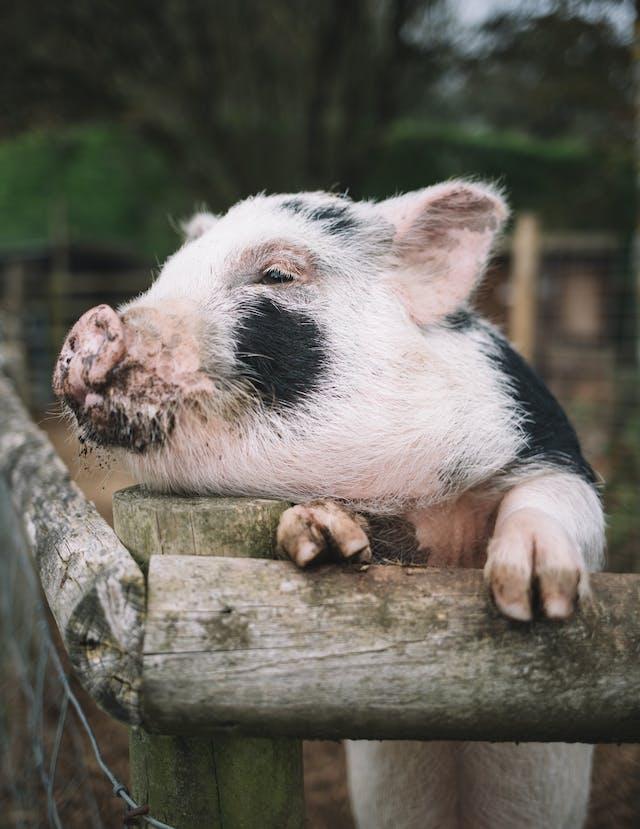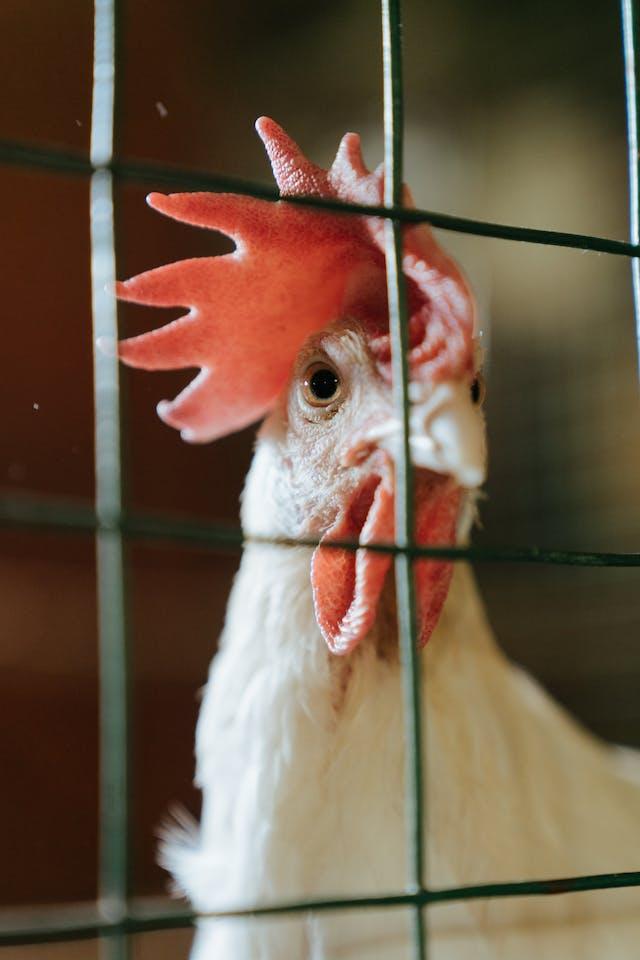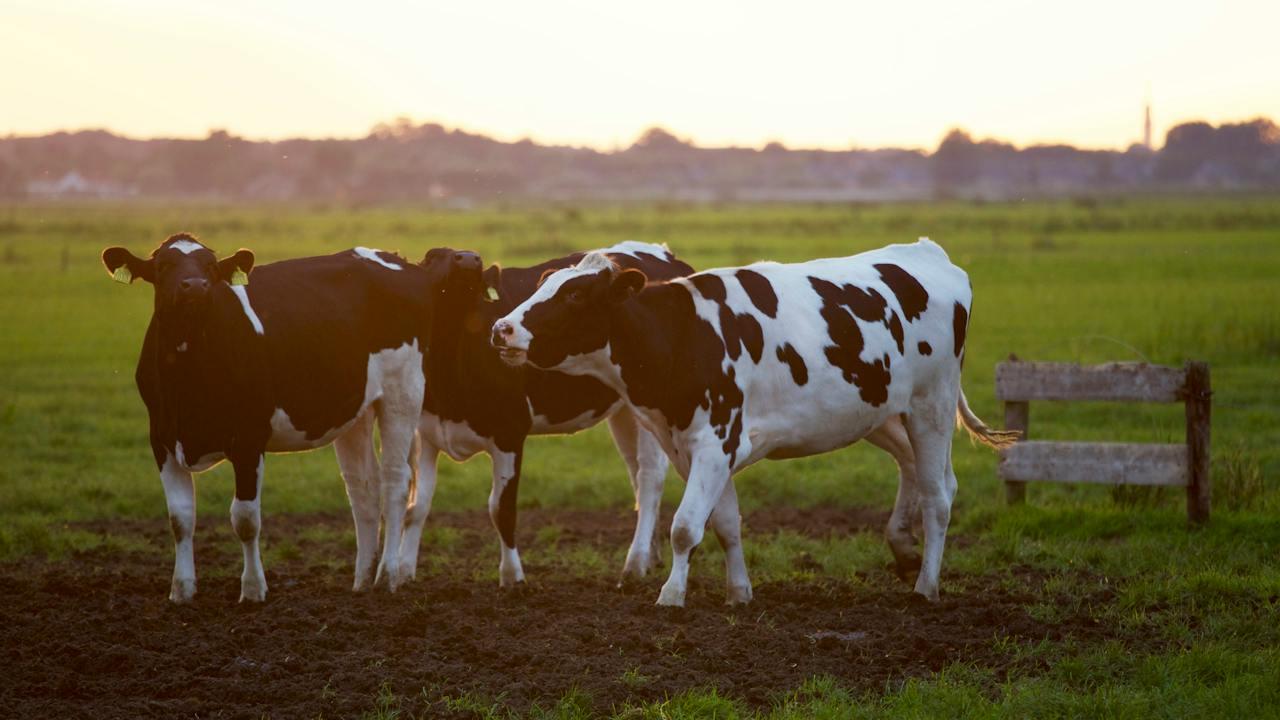“Grass-fed,” “natural,” “free-range,” and “pasture-raised” are 4 labels you’ll usually see on animal merchandise that declare to be higher for us, the animals, and the planet. However what do these claims imply? Do they assure that animals are well-cared for, and raised in an moral, sustainable method? Analysis suggests it’s unlikely. As a substitute, labels like this simply appear to be propping up harmful and exploitative meat, dairy, and egg industries. Right here’s extra about why they exist, and why they won’t be as moral as they indicate.
Cognitive dissonance and animal merchandise
Most individuals are animal lovers. Within the US, practically 90 million houses are shared with a companion animal, like a canine or a cat, and most Individuals see their furry buddies as one other member of the family. In actual fact, in July 2023, one examine from Pew Analysis Middle famous that round half of the folks with companion animals within the US say they’re as a lot part of the household because the human members.
And but, most Individuals additionally eat animals. Practically 90 % of individuals within the US embody meat of their eating regimen, analysis suggests. That is even supposing livestock, like pigs, are clever, playful, and inquisitive—identical to canine.
The truth that many individuals can cherish one animal and eat one other largely comes all the way down to societal conditioning. We see animal merchandise in wrapped packages on grocery retailer cabinets, however most of us by no means see the method that acquired them there, which probably concerned a cramped manufacturing facility farm and a slaughterhouse. In 2018, one Alliance for Science survey discovered that just about 50 % of Individuals not often search details about how their meals is produced.
 Pexels
Pexels
However whereas many attempt to keep away from it, generally, it’s onerous to keep away from enthusiastic about the truth that meat comes from animals. And that is when cognitive dissonance kicks in. In line with Psychology At the moment, this “is a time period for the state of discomfort felt when two or extra modes of thought contradict one another.”
To take care of the cognitive dissonance that outcomes from being an animal lover and likewise consuming them, some would possibly go vegetarian or vegan. However others would possibly hunt down reassurance that the animals or the planet aren’t actually struggling that a lot. Enter: intelligent labeling.
Can meat ever actually be moral?
“Utilizing animals for meals raises moral issues,” Monica Chen, government director of the New Roots Institute tells VegNews. The nonprofit, which was known as the Manufacturing unit Farming Consciousness Coalition, is devoted to ending manufacturing facility farming within the US via training. “It entails treating sentient beings as property,” she continues. “Disregarding their inherent worth and proper to life.”
A cow is likely to be raised in a pasture, for instance, as a substitute of a manufacturing facility farm (the place 99 % of livestock are raised), or a hen is likely to be given entry to the skin (as is the case with free-range hens), however neither of these items takes away the truth that the animals can be killed for the dinner desk. Within the wild, cows can naturally dwell as much as 20 years, however a cow raised for beef will usually be slaughtered earlier than the age of 4.
 Pexels
Pexels
Within the egg business, the time period “free-range” is deceptive, too. Even “excessive welfare” hen farms, just like the one not too long ago introduced by Kipster and Kroger, nonetheless deal with animals like commodities.
“Animals have their very own pursuits in dwelling free from exploitation, ache, and struggling,” provides Chen. “Customers ought to perceive that the majority animal merchandise originate from programs that prioritize revenue over animal welfare. Even phrases like ‘free-range’ or ‘natural’ don’t deal with the elemental subject of exploiting animals for meals.”
And so they don’t deal with lots of the environmental points, both.
What about sustainability?
Animal agriculture has a monumental impression on the planet; it contributes round 14.5 % of annual emissions (that’s considerably greater than the aviation business, which emits 2 %) and drives deforestation and habitat destruction.
However by choosing “grass-fed” or “natural” animal merchandise, many consider they’re selecting meals that’s higher for the surroundings.
True Meals Kitchen, for instance, which has greater than 40 eating places within the US, not too long ago introduced Verde Farms as its grass-fed, natural beef associate. “True Meals Kitchen fastidiously chosen Verde to be our associate for licensed natural floor beef as a result of they consider that meals sourced the proper method is best for the visitor, the surroundings, and the creatures that inhabit it,” Kevin Quandt, the chain’s senior vice chairman of provide chain and sustainability, stated.
In September, natural meals model Natural Valley additionally launched a brand new marketing campaign to guard small natural household farms and claimed that its natural dairy farms produce 24 % much less greenhouse gasoline emissions than standard dairy farms.
 Pexels
Pexels
Nonetheless, some analysis means that many natural and grass-fed merchandise could not really be higher for the surroundings in any respect.
In 2020, one evaluation discovered that solely natural pork was barely higher for the surroundings than its conventionally farmed counterpart. Within the case of natural hen, the meat is definitely worse for the planet than conventionally farmed hen. And for beef and lamb, the examine discovered the same local weather impression for natural and conventionally farmed.
“We anticipated natural farming to attain higher for animal-based merchandise however, for greenhouse gasoline emissions, it really doesn’t make a lot distinction,” Maximilian Pieper of the Technical College of Munich, informed The Guardian.
Some researchers have additionally rejected the declare that grass-fed beef, which comes from cows who’ve spent most of their lives on pasture consuming grass, is best for the planet than factory-farmed beef.
“Grazing livestock are internet contributors to the local weather downside, as are all livestock,” Tara Garnett, PhD, of The Meals Local weather Analysis Community informed the College of Oxford in 2018. “Rising animal manufacturing and consumption, regardless of the farming system and animal sort, is inflicting damaging greenhouse gasoline launch and contributing to adjustments in land use.”
To take care of cognitive dissonance, select vegetation
Many consultants now advocate for a plant-based meals system for the planet. “This evaluation confirms the excessive prices that animal-source meals have for the planet,” Marco Springmann, PhD, of the College of Oxford stated, talking to The Guardian in regards to the natural meat examine.
“The coverage implications are clear: making use of an emissions worth throughout all sectors of the financial system, together with agriculture, would supply a constant and much-needed incentive to alter in direction of more healthy and extra sustainable diets which might be predominantly plant-based,” he added.
 Unsplash
Unsplash
In 2022, one examine from the College of Bonn additionally concluded that wealthy international locations should lower their meat consumption by 75 % to satisfy local weather targets. In 2018, one of many greatest meals manufacturing research ever famous that going vegan was the one greatest method an individual may cut back their impression on the planet.
It’s additionally the one greatest method to assist the animals, too. Yearly, billions of animals are raised in cramped, industrialized manufacturing facility farms, earlier than they’re despatched to the slaughterhouse, for the meals business.
So should you’re coping with cognitive dissonance, it is sensible to stay with vegetation. “It’s important for shoppers to acknowledge the inherent moral issues inside animal agriculture and think about various selections that align with moral and compassionate values,” says Chen.
For extra on meat and ethics, learn:


